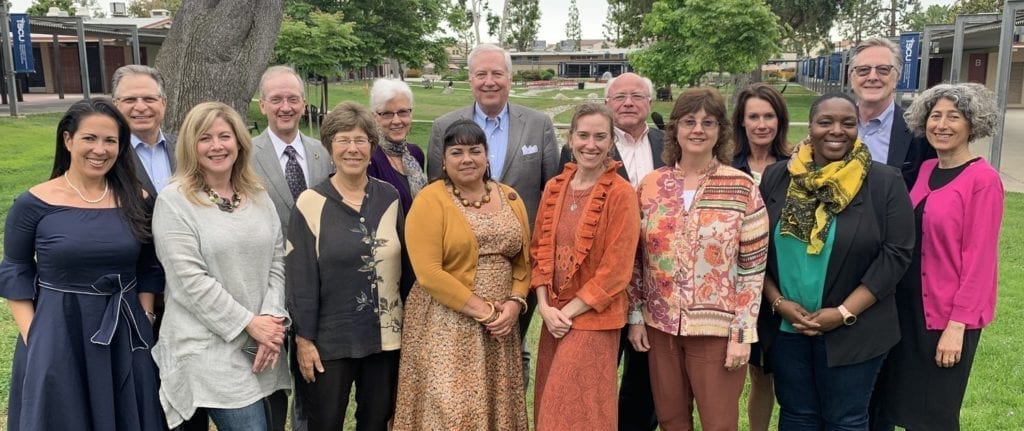Get Into the Pacific Symposium for Free!
As integrative medicine continues to gain recognition and support, it is imperative that we identify models and best practices, as well as challenges and opportunities for growth in integrative healthcare.
Pacific College of Oriental Medicine is working with the Academic Collaborative for Integrative Health to educate our communities about advancements, trends, and best practices in pluralistic healthcare. Alumni who receive awards will get a FREE pass to Pacific Symposium 2019 and will be honored at the Alumni and Faculty party Saturday evening at Symposium. This year Awards will go to those who demonstrate Competency #3: Interprofessional Communication: communicating with patients, families, communities, and other health professionals in a responsive and responsible manner that supports a team approach to the maintenance of health and the treatment of disease.
How to Nominate Yourself or a Colleague
- Submit Name and Contact Information for the nominee along with a short description of how the nominee has demonstrated interprofessional communication in integrative healthcare. See ACIH’s document or see below for more information about Competency #3.
- Include Curriculum Vitae and Professional Bio.
All nominations and supporting documents are due by
July 10th
and can be submitted to Omar Wilkins (for graduates from the DAOM or Transitional Doctorate) at [email protected] or to the Career Services Director at the campus from which you graduated.
One alumni winner from each campus, including one from our online traditional doctorate campus, will be awarded FREE admission to this year’s Pacific Symposium and will be honored at our annual alumni reunion event at with an honorary plaque.

If you think a career in holistic medicine is something you would like to pursue, contact us and speak to an admissions representative to get started on your new journey!
If you think a career in holistic medicine is something you would like to pursue, contact us and speak to an admissions representative to get started on your new journey!
COMPETENCY #3 – Interprofessional Communication
Communicate with patients, families, communities, and other health professionals in a responsive and responsible manner that supports a team approach to the maintenance of health and the treatment of disease.
- CC1. Choose effective communication tools and techniques, including information systems and communication technologies, to facilitate discussions and interactions that enhance team function.
- CC2. Communicate information with patients, families, community members, and health team members in a form that is understandable, avoiding discipline-specific terminology when possible.
- CC3. Express one’s knowledge and opinions to team members involved in patient care and population health improvement with confidence, clarity, and respect, working to ensure common understanding of information, treatment, care decisions, and population health programs and policies.
- CC4. Listen actively, and encourage ideas and opinions of other team members.
- CC5. Give timely, sensitive, instructive feedback to others about their performance on the team, responding respectfully as a team member to feedback from others.
- CC6. Use respectful language appropriate for a given difficult situation, crucial conversation, or conflict.
- CC7. Recognize how one’s uniqueness (experience level, expertise, culture, power, and hierarchy within the health team) contributes to effective communication, conflict resolution, and positive interprofessional working relationships (University of Toronto, 2008).
- CC8. Communicate the importance of teamwork in patient-centered care and population health programs and policies.
Featured Posts:
